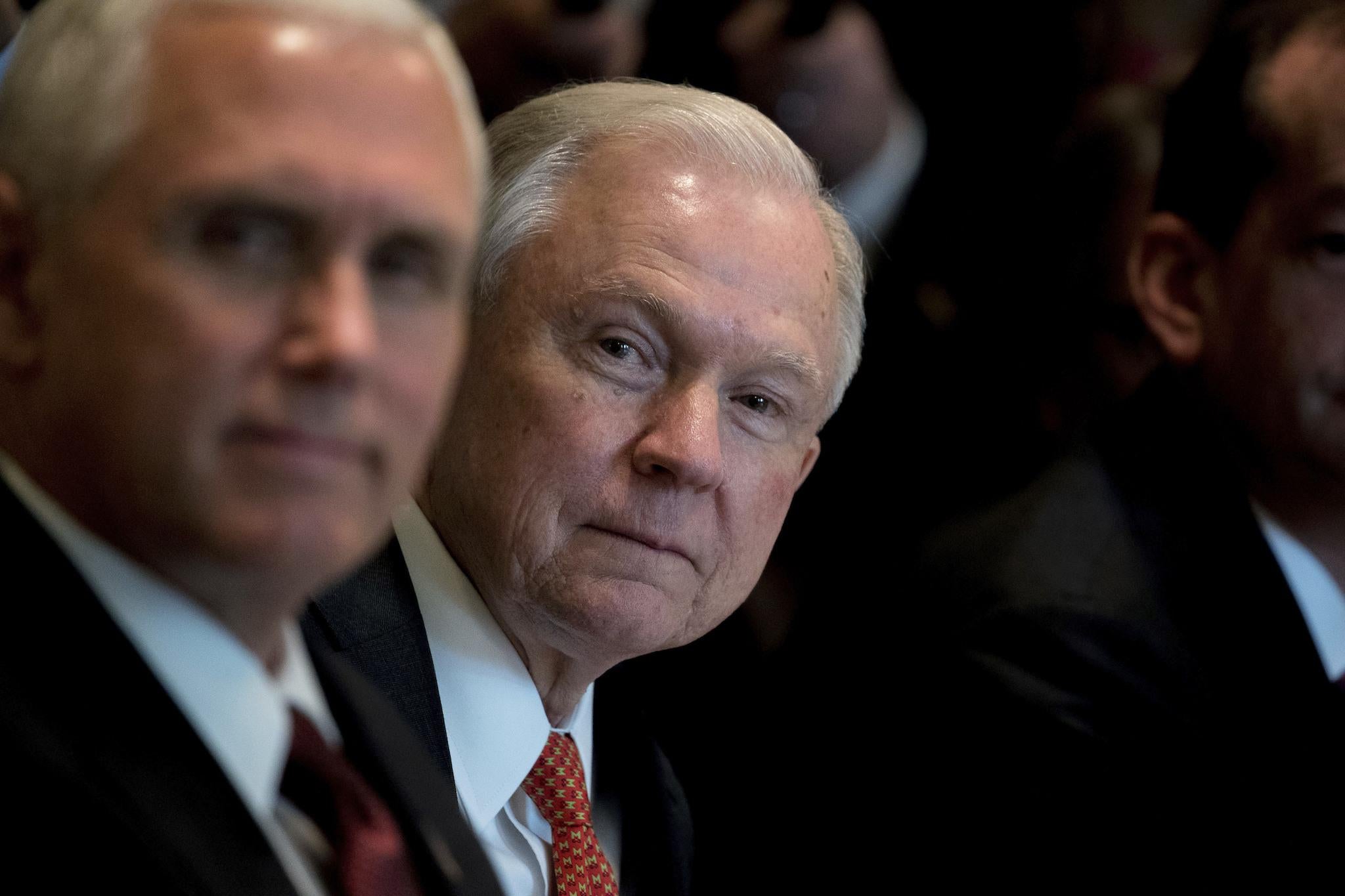Jeff Sessions may avoid revealing Trump conversations during testimony by invoking executive privilege
Attorney General will testify publicly to the Senate intelligence committee as part of its investigation into Russian meddling in the US election

Your support helps us to tell the story
From reproductive rights to climate change to Big Tech, The Independent is on the ground when the story is developing. Whether it's investigating the financials of Elon Musk's pro-Trump PAC or producing our latest documentary, 'The A Word', which shines a light on the American women fighting for reproductive rights, we know how important it is to parse out the facts from the messaging.
At such a critical moment in US history, we need reporters on the ground. Your donation allows us to keep sending journalists to speak to both sides of the story.
The Independent is trusted by Americans across the entire political spectrum. And unlike many other quality news outlets, we choose not to lock Americans out of our reporting and analysis with paywalls. We believe quality journalism should be available to everyone, paid for by those who can afford it.
Your support makes all the difference.The US Attorney General, Jeff Sessions, could invoke executive privilege before Congress in response to questions about his private conversations with Donald Trump, White House press secretary Sean Spicer has suggested.
“I think it depends on the scope of the questions,” Mr Spicer told reporters during a briefing. “To get into a hypothetical at this point would be premature.”
Mr Sessions will testify publicly to the Senate intelligence committee as part of its ongoing investigation into whether Trump campaign advisers colluded with the Russian government to influence the 2016 presidential election.
Mr Sessions recused himself from that investigation in March after it was revealed that he met twice with Russian Ambassador Sergey Kislyak during the presidential campaign and did not disclose those encounters to Congress during his confirmation hearing in January.
Mr Sessions is likely to face questions about those meetings, as well as about his conversations with former FBI director, James Comey.
Mr Comey, fired by Mr Trump last month, has alleged that he had asked the attorney general to shield him from having to have private conversations with the President. Mr Sessions did not verbally respond to his request, Mr Comey said.
Mr Trump has recently seemed to demonstrate a lack of confidence in Mr Sessions.
After the London Bridge terror attack, the President declared that the Justice Department should have fought for his original travel ban, which limited travel from several predominantly Muslim countries, instead of the “watered down, politically correct version” that has been submitted to the Supreme Court.
The Trump administration dropped its appeal of the President’s first travel ban issued in January, after the US Court of Appeals for the Ninth Circuit in California deemed the order unconstitutional.
Mr Trump then issued a heavily revised ban in March aimed at defeating court challenges, but has still not been successful. On Monday, the Ninth Circuit joined the Fourth Circuit in Virginia in upholding blocks on that version.
“We continue to be confident that the President's executive order to protect this country is fully lawful and ultimately will be upheld by the Supreme Court,” Mr Spicer said.
Mr Trump was also reportedly “furious” over Mr Sessions’ recusal from the Russia investigation, which is now being overseen by special counsel Robert Mueller.
When asked if the President is okay with Mr Sessions testifying in an open setting tomorrow, Mr Spicer responded: “I think he's going to testify. We're aware of it and we'll go from there.”
Join our commenting forum
Join thought-provoking conversations, follow other Independent readers and see their replies
Comments